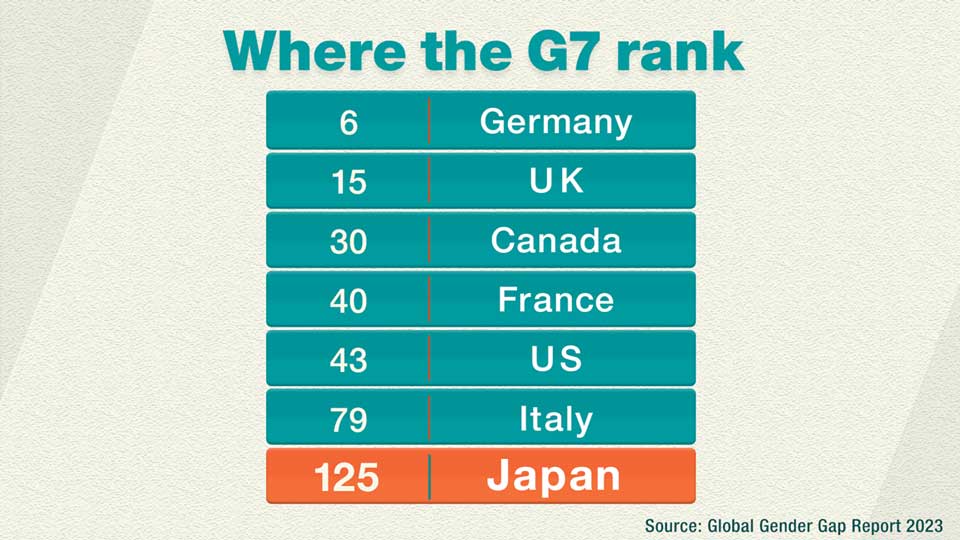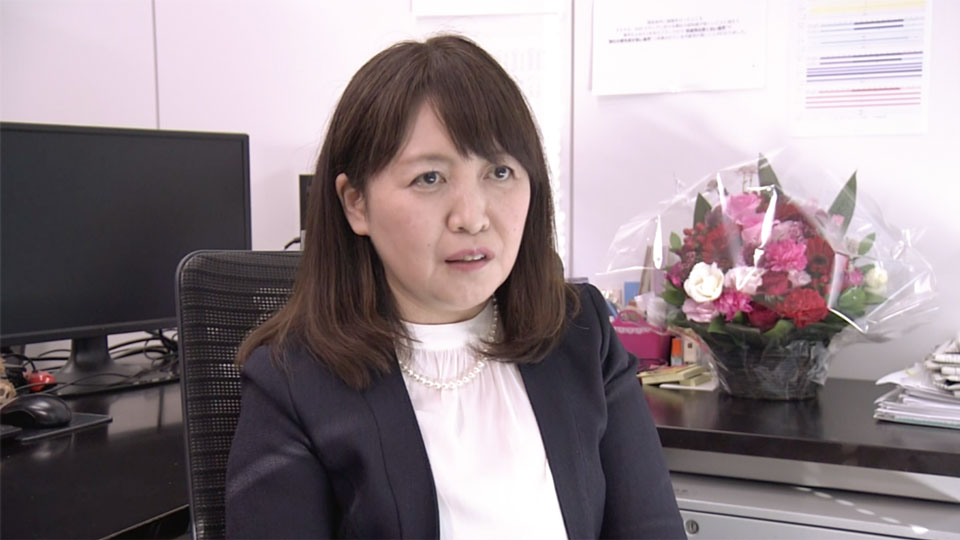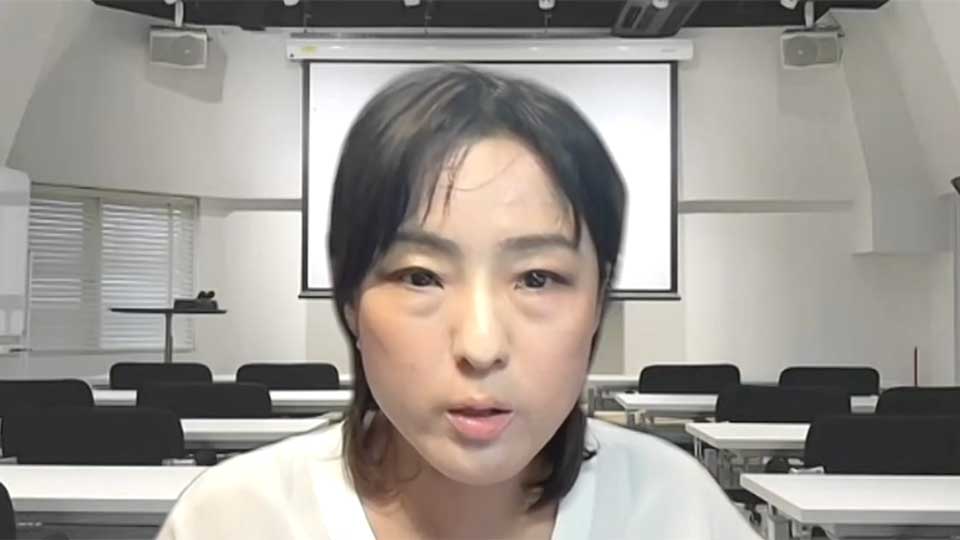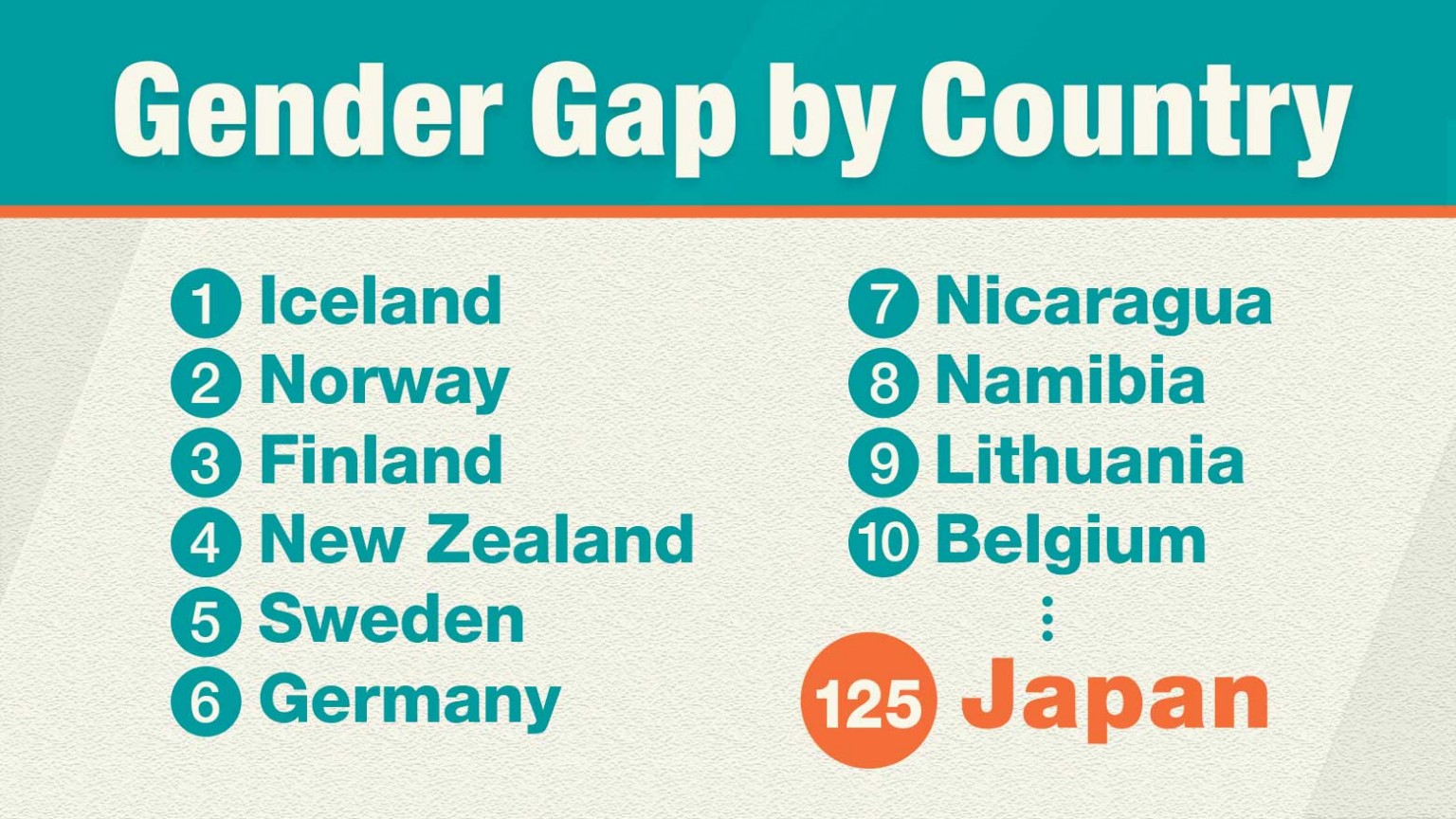Japan is by far the lowest-ranking member of the G7, coming 46 places behind second-worst performer Italy.

The WEF's annual Global Gender Gap Report scores countries on "Economic Participation and Opportunity," "Educational Attainment," "Health and Survival" and "Political Empowerment."
Japan almost achieves parity in education and healthcare, but does poorly elsewhere.
The country ranks 138th in politics, and that should come as no surprise. Women account for only 10 percent of lawmakers in the Lower House, and just 8.3 percent of the Cabinet.
Overall, Iceland comes out on top for the 14th straight year, followed by Norway, Finland and New Zealand.
No country in the report achieved full gender parity. The WEF says globally, that's at least 131 years away.
Govt. seeks big changes at board level
Government officials in Japan are aware that the country must improve. A new policy package aims to ensure at least 30% of board members at the Tokyo Stock Exchange's top-listed firms are women by 2030.
To illustrate the challenge ahead, 18.7 percent had no females on the board as of July 2022.
NHK recently conducted a survey on 245 of those firms. Of them, 120 are considering adding women to their boards.
Most said they will seek females from outside the company, including lawyers and university professors. Only six percent plan to recruit from within their ranks.
You may be interested in: Japan wants women to hold 30 percent of top companies' executive roles by 2030
Choosing from within
Tokyo-based forex investment company Money Partners elected a current female employee to the board last week.
Kajikawa Rie joined the firm 17 years ago. She became head of sales after management started placing importance on ability regardless of age, gender and length of service in 2021.

"There were many times in the past when I made the same proposal as a male colleague, but mine was rejected," Kajikawa says.
"But now, I feel rewarded ... I want to place value on women and young employees."
Money Partners President Fukushima Hideji believes the company's performance will improve by allowing all employees to flourish.
"Competition in the FX business is fierce. Thinking seriously about survival, we should not dismiss people's abilities because of nationality, age or gender."
You may be interested in: Expert says Japanese leaders aren't doing enough for gender equality
Expert says diversity helps business
Chief SBI Securities analysist Hatano Akemi believes gender equality can be good for business.
"Older industries with fewer female workers typically have problems such as a labor shortage, low productivity and low stock valuations," she says. "I think it's time for some companies to restructure."

